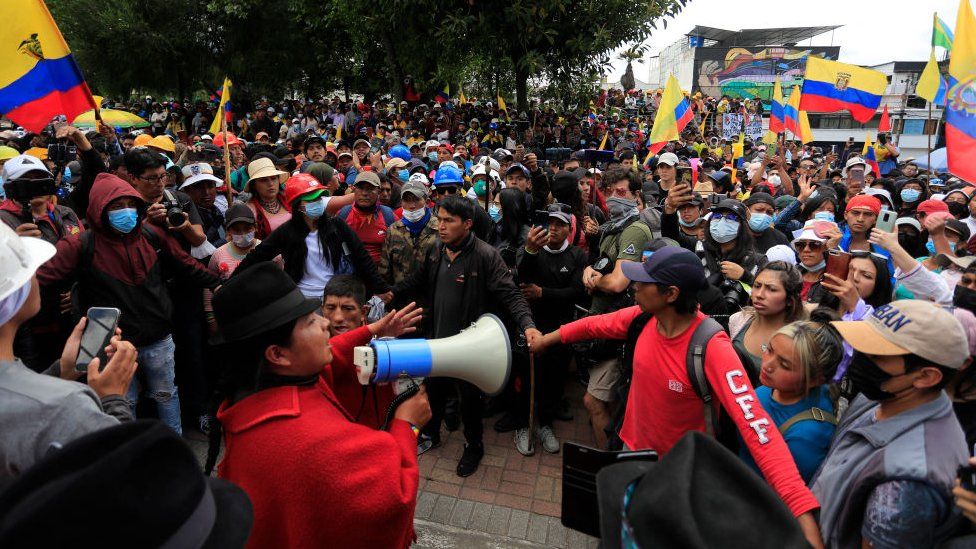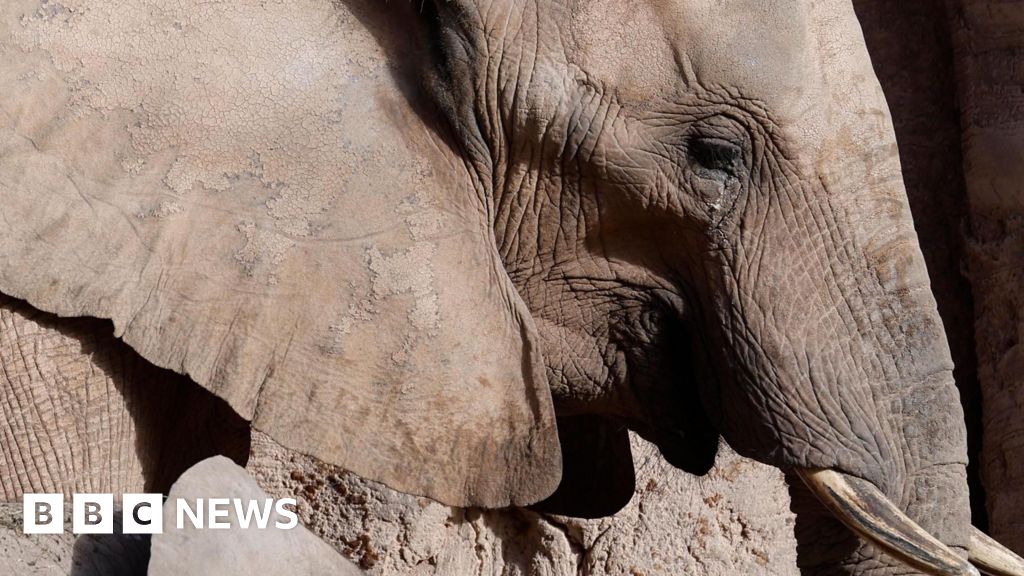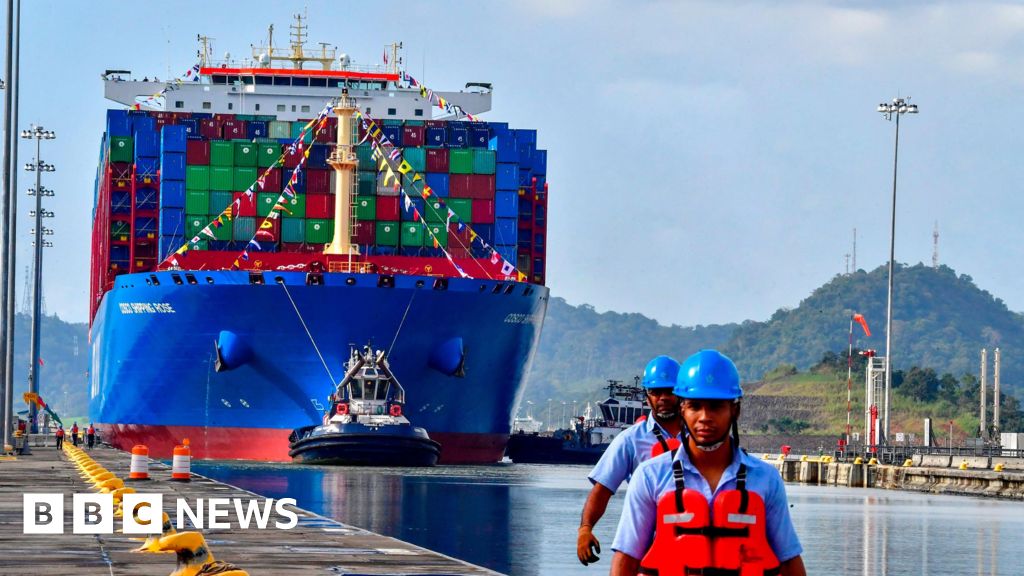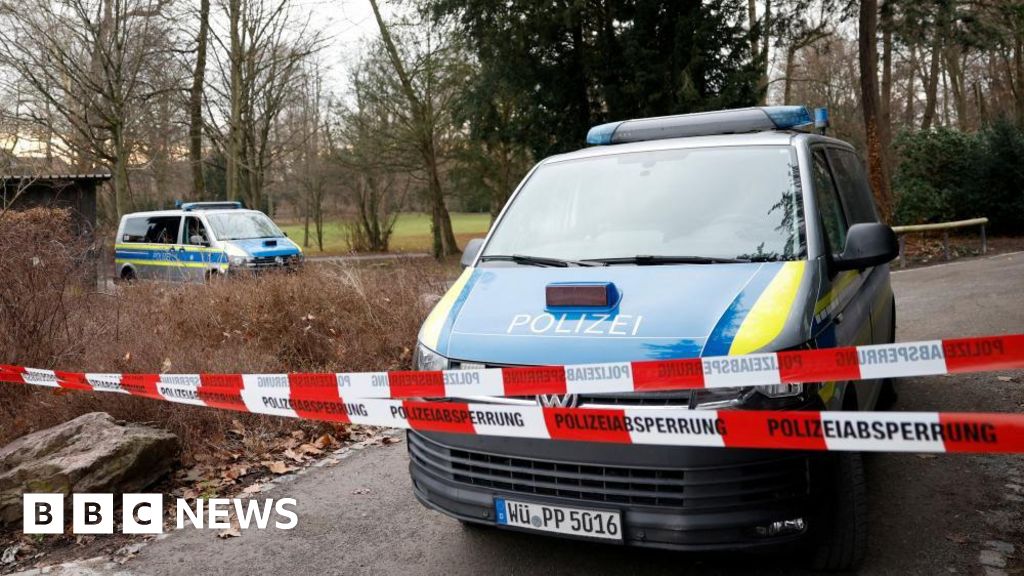ARTICLE AD BOX
By Leo Sands
BBC News
 Image source, Getty Images
Image source, Getty Images
Indigenous leader Leonidas Iza speaks to demonstrators waiting outside the negotiations for news
Indigenous leaders in Ecuador have signed an agreement with the government to end more than two weeks of tense protests.
Demonstrators had been blocking roads and staging rallies to demand action on soaring fuel and food prices.
Some of the protests turned violent and at least six people are thought to have died in clashes with security forces.
As part of the deal, Ecuador's government has agreed to lower the cost of fuel by 15 cents (12p) per gallon.
Since 2020, the cost of diesel has almost doubled and petrol prices have risen dramatically in the oil-producing nation.
The concession by the government amounts to half of what demonstrators had originally demanded, but according to Ecuador's finance ministry it will cost the country $340m a year.
Government negotiators also agreed to consult with indigenous communities on future mining and oil developments and add other limits on their expansion.
Image source, Getty Images
Image caption,Indigenous groups gather in Quito for a march on 30 June
Ecuador's President Guillermo Lasso hailed the agreement on Twitter: "We have achieved the supreme value to which we all aspire: peace in our country," he wrote.
Leonidas Iza, the leader of the powerful Conaie indigenous organization, said after signing the deal that protests would now be suspended. "We're going to keep fighting," he added, however.
According to AP news agency, the government now has 90 days to prove it has delivered on the agreement.
For 17 days around 14,000 mainly indigenous Ecuadoreans took part in the mass strikes, and at one point protest leader Leonidas Iza was arrested.
The demonstrators blocked key roads in and around the capital Quito and other cities, causing significant economic disruption and prompting fears of food shortages.
According to calculations by Ecuador's energy ministry, production of the country's most valuable export - fuel - fell by half.
Clashes between demonstrators and security forces left five civilians and one soldier dead and caused a previous round of negotiations to fall apart.
Ecuador has been grappling with rising levels of inflation, unemployment and poverty.
A $6.5bn (£5.3bn) financing deal negotiated between Ecuador's government and the International Monetary Fund during the height of the coronavirus pandemic is due to come to an end later this year.

 2 years ago
91
2 years ago
91








 English (US) ·
English (US) ·